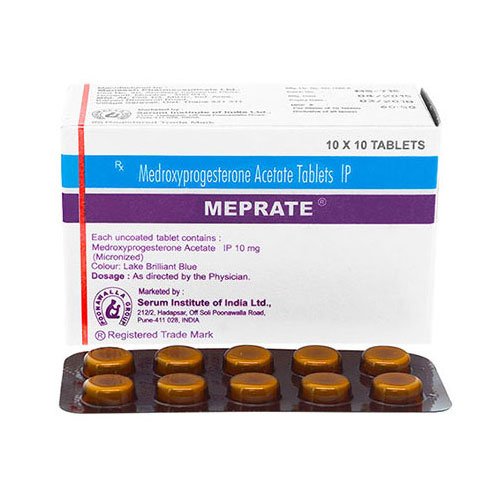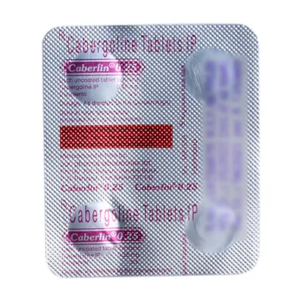Please, activate Compare option to use this widget.
Need help? Call us:
+91 97147 40045
Shopping cart (0)
Subtotal: $0.00
Spend $3,050.00 to get free shipping
Congratulations! You've got free shipping.
Caberlin 0.25 mg Tablet
$18.00 – $49.00


Danogen 50 mg Capsule
$17.00 – $46.00
Meprate 10 mg Tablet
Brand:
41 people are viewing this product right now
$21.00 – $57.00
Shipping calculated at checkout.
| Meprate 10 mg Tablet | |||
|---|---|---|---|
| Pack Size | Price | Per Unit | Qty |
| 30 Tablets | $21.00 | $0.70 | |
| 60 Tablets | $40.00 | $0.67 | |
| 90 Tablets | $57.00 | $0.63 | |
🔥 Buy More Save More!
Buy 3 items get 5% OFF
on each productBuy 6 items get 10% OFF
on each productBuy 10 items get 15% OFF
on each product
Estimated delivery:3 days
Have any Questions?
Feel free to Get in touch
Guarantee Safe and Secure Payment Checkout
Meprate 10 mg Tablet – Product Description
Brand Name: Meprate
Active Ingredient: Medroxyprogesterone acetate
Formulation: Tablet
Packing: strips of 10 dispersible tablets per pack.
Manufacturer: Cipla Ltd.
Description:
Meprate 10 mg is a progestin (a synthetic form of the hormone progesterone) used for various medical purposes. Medroxyprogesterone, the active ingredient, works by mimicking the action of progesterone in the body. It is commonly used in hormone replacement therapy (HRT), and to treat menstrual disorders, endometriosis, and other conditions related to hormonal imbalance.
Indications:
-
Menstrual Disorders: Meprate is prescribed to treat irregular or absent menstrual periods (amenorrhea) caused by hormonal imbalances.
-
Endometriosis: It helps to reduce the pain and growth of endometrial tissue outside the uterus in women with endometriosis.
-
Contraception: Meprate is sometimes used as a hormonal contraceptive in certain cases, particularly in combination with other therapies.
-
Hormone Replacement Therapy (HRT): It can be used in combination with estrogen in HRT for postmenopausal women to prevent endometrial hyperplasia (excessive growth of the uterine lining).
-
Abnormal Uterine Bleeding: It can help manage bleeding caused by hormone imbalances or other uterine conditions.
Dosage and Administration:
-
For menstrual disorders or amenorrhea:
-
The typical dose is 10 mg daily for 5 to 10 days depending on the specific condition and doctor’s recommendation.
-
-
For endometriosis:
-
The usual dose is 10 mg for 10 to 14 days during each treatment cycle.
-
-
Hormone Replacement Therapy (HRT):
-
Meprate is often used with estrogen in a cyclical regimen (usually for 10-14 days each month) to prevent the risk of endometrial cancer caused by unopposed estrogen.
-
Side Effects:
Meprate can cause side effects, though not everyone experiences them. Common side effects may include:
-
Headache or migraine.
-
Mood swings or depression.
-
Bloating or weight gain.
-
Breast tenderness or pain.
-
Nausea or vomiting.
-
Dizziness or fatigue.
-
Changes in menstrual bleeding patterns (spotting, lighter or heavier bleeding).
Serious side effects, although rare, may include:
-
Severe abdominal pain or pelvic pain.
-
Leg swelling or redness (could indicate a blood clot).
-
Vision problems or blurred vision.
-
Jaundice (yellowing of the skin or eyes).
If any of these serious symptoms occur, seek immediate medical attention.
Precautions and Warnings:
-
Pregnancy: Meprate should not be used during pregnancy as it can harm the fetus.
-
Breastfeeding: It should be used with caution if breastfeeding, as it can pass into breast milk.
-
Blood Clots: Medroxyprogesterone may increase the risk of blood clots, so it should be avoided if you have a history of deep vein thrombosis (DVT), pulmonary embolism, or stroke.
-
Liver Disease: If you have a history of liver disease, your doctor may advise against using Meprate.
-
Cancer Risk: There is an increased risk of certain cancers, such as breast cancer and endometrial cancer, in some women using progestins, especially when used in combination with estrogen.
-
Diabetes: Medroxyprogesterone may affect blood sugar levels in some individuals with diabetes.
-
High Blood Pressure: It may cause fluid retention, so people with hypertension should use it with caution.
Storage Instructions:
-
Store Meprate 10 mg tablets at room temperature (between 15°C to 30°C).
-
Keep the tablets in their original packaging, tightly closed to protect from moisture and light.
-
Keep out of reach of children and pets.
Disclaimer:
Meprate should be used under the supervision of a healthcare provider. Follow the prescribed dosage and treatment plan exactly as directed by your doctor. Regular check-ups are necessary, especially if the treatment is being used long-term. Always consult your healthcare provider for advice regarding any questions or concerns related to your treatment with Meprate.
Related products
You may add any content here from XStore Control Panel->Sales booster->Request a quote->Ask a question notification
At sem a enim eu vulputate nullam convallis Iaculis vitae odio faucibus adipiscing urna.








